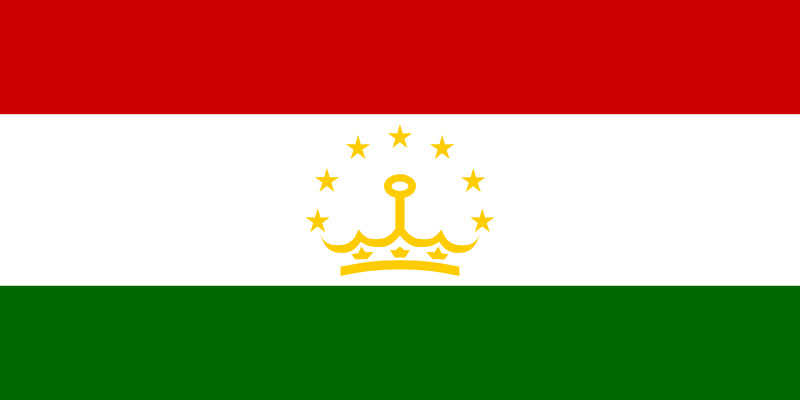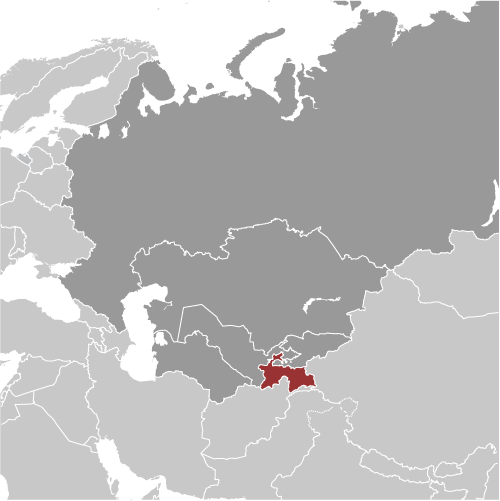HISTORICAL BACKGROUND
The Constitution of the Republic of Tajikistan states:
Article 25: Governmental organs, social associations, and officials are obligated to provide each person with the possibility of receiving and becoming acquainted with documents that affect her or his rights and interests, except in cases anticipated by law.
Article 30: Each person is guaranteed the freedoms of speech and the press, as well as the right to use information media. Governmental censorship and prosecution for criticism are forbidden. A list of information considered secrets of the state is determined by law.
The Law of the Republic of Tajikistan on Information was signed by President Rahmonov in May 2002. The law provides for a right of access to official documents by citizens to state bodies. Citizens, state bodies, organizations and associations can ask for access to information on the activities of legislative, executive and judicial authorities and their officials. The request must be in writing and bodies have thirty days to respond. The requestor must pay the costs for the searching, collection, preparation and providing of requests.
There are exemptions for official documents which contain information which is: secret as defined by the Law on State Secrets; confidential including information "of a professional business, industrial, banking, commercial and other nature" as determined by the owners of the information; on operational and investigations; relating to the personal life of citizens; intradepartmental correspondence prior to a decision being adopted; or protected by other Acts.
Denials must include the name of the official and the reasons for denial. Appeals are to a higher-level body in the Ministry or organization and to the courts. Courts have the right to access all of the official documents and can order the release of the information if it is withheld without cause. There are sanctions for unjustified denials, releasing incorrect information, untimely delays, deliberate hiding of information, and destroying information.
State bodies are to provide access to "open information" through publication in official bulletins, the mass media and providing direct access to citizens, state bodies and legal entities.
The law also includes some privacy provisions. The collection, storage and use of information about private life of citizens (which includes documents that they have signed) is prohibited unless it is allowed by law or with the consent of the person. Citizens also have the right to know why information is being collected, by whom and for what purpose and to access personal information held about themselves and demand that it is complete and accurate.
Media organizations report that there are continuing serious problems with access to information. A review by National Association of Independent Media of Tajikistan (NANSMIT) of media freedom from 1999 to 2004 found that denial of access by the media to official information was the most common form of denial of media rights. NAMSMIT said the reasons were a low professionalism and competence of officials, fear of officials in giving information, a lack of adequate sanctions in the legislation, the low professional level of journalists who do not want to clash with officials, and mistrust of journalists by officials. A monitoring project in 2005 found many denials of basic information including the number of persons sick from typhoid fever, anthrax, brucellosis and flu, statistics of divorce cases, the number of suicides, funds spent for events on Day of the Youth, the total amount of drugs seized by the police, bathing deaths, and natural disasters. The government itself admitted problems in a report to the UNECE stating that access to environmental information was limited, "due to the legal illiteracy of the public itself and the exploitation of the situation by officials."
The OECD's Anti-Corruption Network for Transition Economies recommended in January 2004 that the Government:
Consider creating an independent office of an Information Commissioner to receive appeals under the Law on Access to Information, conduct investigations, and make reports and recommendations. Revise the Access to Information legislation, to limit discretion on the part of the public officials in charge, and to limit the scope of information that could be withheld.
The Law on State Secrets was adopted in April 2003. It is largely unchanged from the 1996 version. The law defines state secrets as including "state protected information in the fields of defence, economics, external affairs, state security and protection of public order, the dissemination of which may bring damage to the security of the [Republic of Tajikistan]." This does not include information on natural disasters and other emergencies, environmental conditions and health, and unlawful actions of state bodies. It is overseen by the Main Administration on State Secrets. The "Law on checklist of information referred to state secret" sets out the types of secret information. The law gives broad discretion to officials to classify information including related to the use of the death penalty. The Law allows to appeal the unreasonable classification of information by public officials to a higher level at the agency concerned and then to a court.
The Organization for Security and Cooperation in Europe (OSCE) issued a declaration in September 2004 calling on Tajikistan and other Central Asian countries to amend their state secrets laws to only apply to "information whose disclosure would significantly threaten the national security or territorial integrity of a nation", to publish the associated state secrets regulations, shorten time durations for classifying information and limit liability for journalists publishing state secrets in cases of public interest.
Tajikistan acceded to the Aarhus Convention on Access to Information in June 2001. An Aarhus Center sponsored by the OSCE was opened in Dushanbe in 2003. The Environmental Protection Act gives citizens a right to obtain environmental information. Access is through the Information Act.
[Footnotes for this section are currently unavailable but will be posted the week of July 10. All footnotes and references are also available in the full study, available here.]
2004 freedominfo.org Global Survey Results - Tajikistan





















